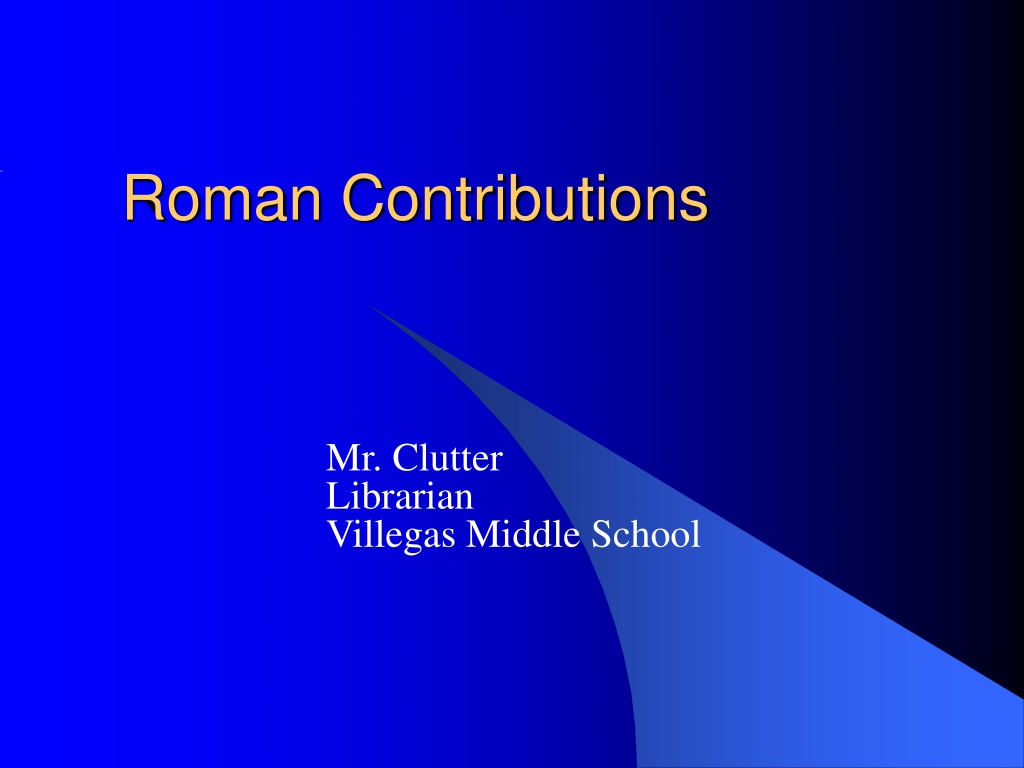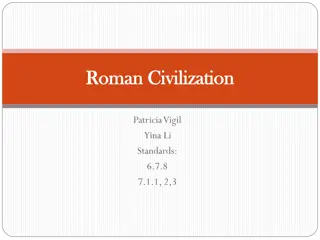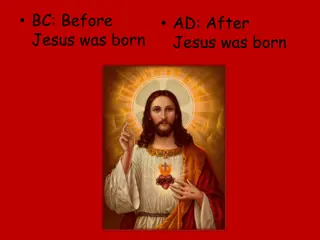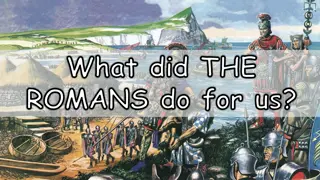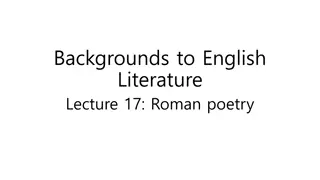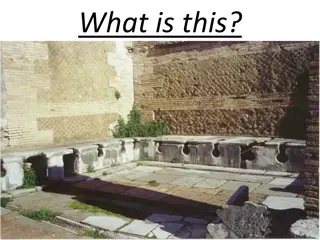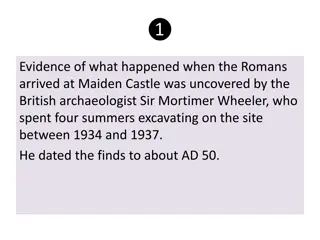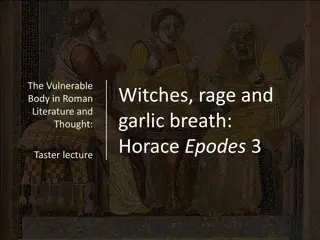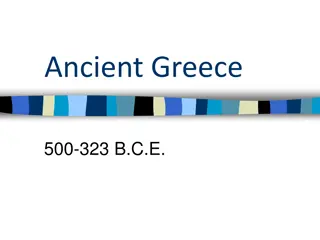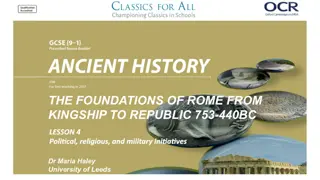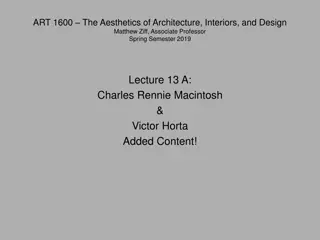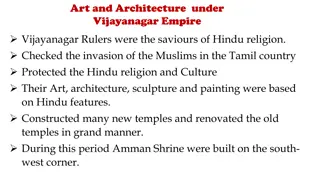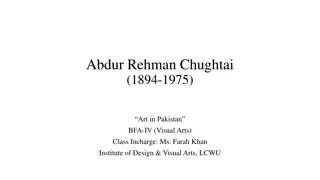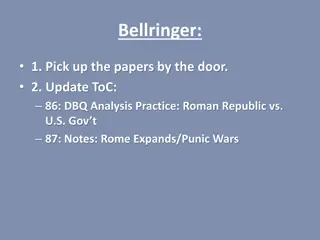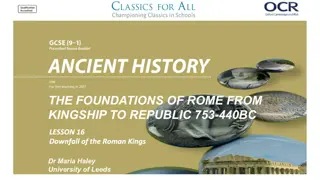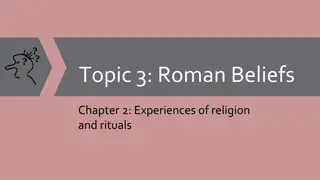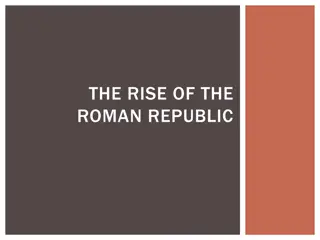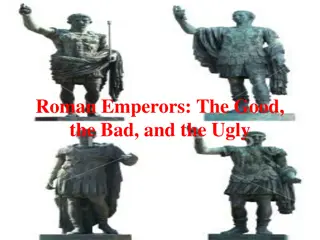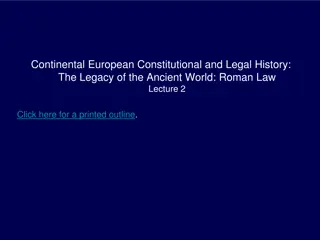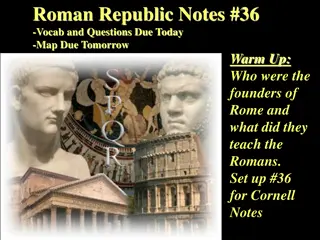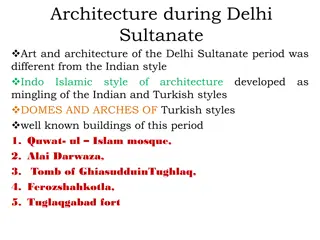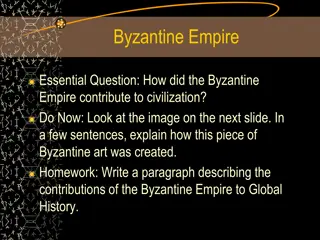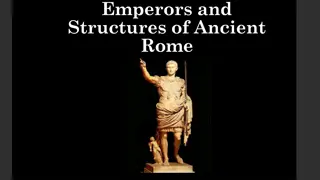Exploring Roman Contributions: Aqueducts, Architecture, Art & More
Discover the lasting legacy of Ancient Rome through its significant contributions such as aqueducts, architectural marvels like the Pantheon, intricate art forms including mosaics and sculptures, the influence of Latin language, rich literary heritage, and military strategies. Dive into the fascinating world of Roman history and culture.
Download Presentation

Please find below an Image/Link to download the presentation.
The content on the website is provided AS IS for your information and personal use only. It may not be sold, licensed, or shared on other websites without obtaining consent from the author. Download presentation by click this link. If you encounter any issues during the download, it is possible that the publisher has removed the file from their server.
E N D
Presentation Transcript
Roman Contributions Mr. Clutter Librarian Villegas Middle School
Roman Aqueduct Ancient Rome had eleven major aqueducts, built between 312 B.C. and 226 A.D.the longest (Anio Novus) was 59 miles long.
Roman Architect Rome Pantheon - Dome Round Columns Temple of Fortuna Virilis Coliseum Arena
Roman Architect Part II Vaults were Roman era shops Arches Served as a Gateway
Roman Architect Part III London building that Contains Roman Arches Traditonal Roman Arch blue print Keystone was the basis for the building.
Roman Art Roman Flasks {Glass} Bird in the Garden - Fresco Roman Mosaic Roman Bust in marble
Roman Domes The Pantheon dome was 142 feet long and 71 feet high with no support columns.
Roman Gladiators Gladiator Helmet Roman Shield
Roman Language: Latin Roman Empire it was referred to as Latium. Romance languages descend from Latin Currently Latin is a dead language. That means it is not spoken by any country but yet it is taught in some schools. It is responsible for our current use of Roman Numbers for notes I, II, III etc. Also responsible for many proverbs.
Roman Literature Oratory: Marcus Cicero greatest known persuasion, teaching, dialogue, etc Mythology: Rituals, priestly colleges, clusters of related gods Historical myths interwoven with divine intervention Philosophy: Cicero, Stoics virtues of wisdom, self control, courage. This was contrary to the Greeks life of pleasure
Roman Military The Orb The Wedge Centurion
Roman Politics Tribune was someone who fought for the rights of the poor but it was not a popular position to hold. Jurisprudence the theory and practice of law. Lawyers get a J.D. degree 3 Branches of Government: The Consul {civil and military} The Senate {advisory} and the Assembly {members of the army} Veto concept was introduced by the Romans. Twelve Tables was the law carved into bronze and displayed in the City Center. Patricians were eligible to elect representatives to serve in one of the 3 branches.
Roman Christianity The origins and early spread of Christianity took place in the Roman Empire. It was based on the teachings of Jesus Christ. Spread during the PAX Romana. Despite persecution of the early Christians, Christianity became the official religion of the Roman Empire.
Rights of women Women, or more correctly, girls, were usually married by the time they were twelve years old the law required that all women, young and old, be under the care of a "guardian". women were not restricted from owning property and wealth. If it benefited her husband.
This powerpoint was kindly donated to www.worldofteaching.com http://www.worldofteaching.com is home to over a thousand powerpoints submitted by teachers. This is a completely free site and requires no registration. Please visit and I hope it will help in your teaching.
